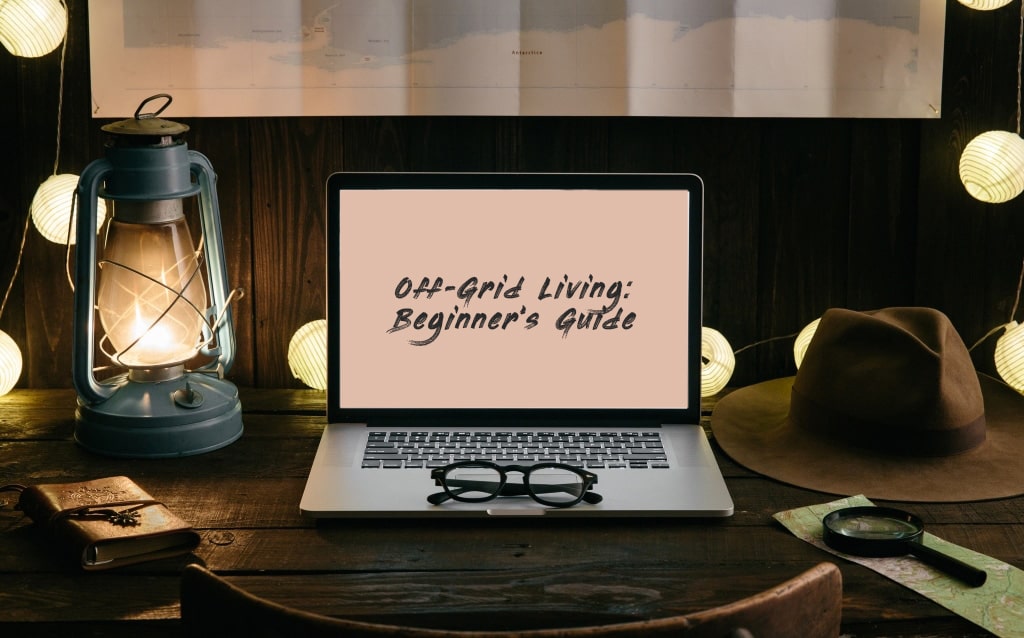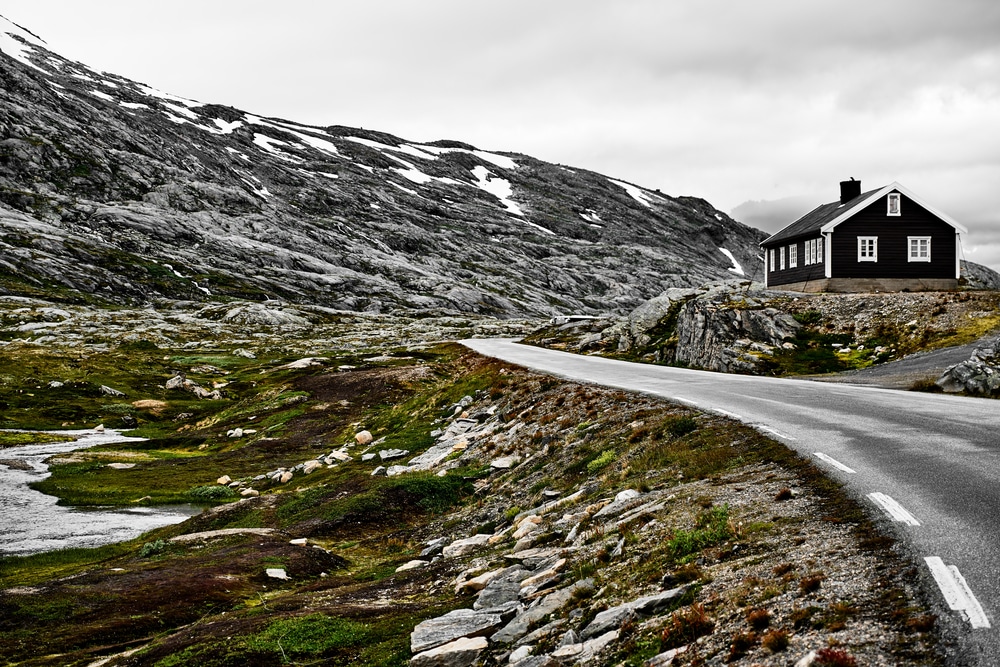
Off-grid living is a way of life that is becoming increasingly common as more and more people come to the realization that they can live well without dependence on utility companies. Most people who choose this way of life are those who are interested in living a simpler life where they can be self-reliant and self-sufficient.
Off-grid living involves several distinct characteristics, such as using alternative power sources, being self-reliant, using renewable energy, and living in a remote location, and they often go hand in hand.
If you’re looking to start an off-grid lifestyle, then you’ve come to the right place.
Whether you want to live completely off the grid, or just reduce your dependence on the grid, this guide will help you navigate through the many different options and the steps involved in getting started.
Table of Contents
How to Live Off the Grid?
There is a lot to learn about this lifestyle, and it’s not something you should dive headfirst into without knowing what you’re getting yourself into. When it comes to starting a new life off the grid, there are a variety of ways to go about it and make it work for you.
One of the ways is to know the ins and outs of living in a remote location so that you know what supplies you’ll need and what to prepare before committing. Every state has its own restrictions and rules, so make sure that you know what those are, and that you’re prepared to abide by them.
You have to be aware of any restrictions regarding construction in your area. You might be limited in the types of materials you can use, or you might be limited in how big your structure can be.
In addition to finding the right location, you can also live off the grid by using sustainable organic farming techniques. This means growing your own food, using natural resources, and composting your waste.
These are all great starting points, but ultimately it is important to be prepared for anything, be sure to include a Plan B in place in case things don’t go as planned.
Some of the things you’ll want to consider are:
- The type of home you’re living in.
- The lifestyle you want to have.
- The amount of electricity you’ll need to generate for your home.
- The amount of water you’ll need.
- Hunting, fishing and gardening skills
- Food source
- The size of your family
Common Questions About Going Off-Grid
There are some common questions that many people have before going off-grid.
What off-the-grid Living Structures are Right for you?
There are a number of different types of off-grid living structures out there, and you’ll want to make sure that whatever one you decide to go with is right for you. In either case, make sure that it’s safe, accessible, and comfortable.
Here are some off-grids living structures you may consider:
- Yurt
- Shipping container home
- Silo homes
- RV
- Tiny house
- Log cabin
- Treehouse
- Bamboo House
What Power Generation System do you Need?
One thing that you’ll need to make sure you have is a reliable source of power. That means that you need to know what kind of power generation system you’ll need to power all your appliances.
Going green is one of the preferred ways. Most people think of wind power, solar power system, or perhaps both. You may even hear of some people using a hybrid system, which is a combination of both. However, the initial investment might be higher than traditional generators. Or, if you reside close enough to the grid, you still might be able to connect to it.
There are many other ways to generate power for a mobile off-the-grid lifestyle. And depending on where you live, you might be able to find a lower-cost alternative to power. If you want to know more about the different options for powering your off-grid home, check this article here.
*Do check if you are eligible for any rebates, some states offer rebates for solar panels and battery systems.

Where is a Good Place to Live?
As far as where to live, the main thing is to make sure that you have a spot that’s safe, accessible, and free from the dangers of natural disasters. Before you start, you’ll want to decide what you want out of life, and then figure out how much you’ll need.
Is hunting and fishing your preferred way to get food? Or does gardening and raising livestock suit you better?
The type of lifestyle you choose will have to depend on the food and power source, so make sure that you factor those things into the equation. It’s important to find a place that feels like home to you. You should be able to imagine living there forever, and you should enjoy the environment around the house.
Where can I get Clean Water?
Water is a necessity for any homestead, but if you live in an area where it is difficult to obtain water, you may want to have a backup system. There are many different water harvesting systems out there, ranging from a rain barrel to a large cistern. There is no single solution that is best for everyone.
Most people will want to start by considering their own backyard. You can use rain barrels, greywater systems, and solar-powered water pumps.
If you have space, consider building an underground cistern. Cisterns are large tanks that collect rainwater and can be connected to a small pump that brings the water to the house.
However, if you decide to build a cistern you will want to research local ordinances to see if you need a permit.
For this reason, many people choose to go with a rain barrel instead. Rain barrels are generally smaller than cisterns and are easier to install. You just hook it up to a downspout and fill it. You can make sure that the downspout is the right size by measuring the diameter of your downspout before you put it in.
If you want to build your own DIY rainwater harvesting system, check out this article here.
What Kind of Livestock Should I Raise?
Livestock is another essential part of an off-grid lifestyle. You should have a small number of chickens, pigs, goats, and other farm animals that is easy to maintain. After they mature, you’ll get various products like poultry, milk, eggs, and ferterlizers.
You should be careful not to have too many animals. You don’t want to get into trouble by being too much in debt or having too many animals competing for food.
Having a large number of animals will also mean that you need to be extra vigilant about disease control. That’s one important thing that you’ll have to pay attention to, and it’s something you need to research and consider.
How to Grow Your Own Crops?
Growing your own vegetables is a great way to ensure that you have fresh produce. Not only is it a good way to reduce waste, but it also helps you to avoid harmful pesticides residues from purchased crops.
To grow vegetables, you’ll need healthy, well-draining, and nutrient-rich soil. You’ll also need a good supply of compost and manure. These are great ways to improve the quality of the soil.
The more fertilizer you add, the more nutrients the soil will have, and the better the plants will grow. You may find it helpful to read my articles on: Step By Step Guide To Start Harvesting Food.
How to Prepare for Emergencies?
You should be prepared for emergencies such as tornadoes, hurricanes, floods, fires, earthquakes, and other natural disasters.
Preparing for emergencies is a big task. You need to be familiar with your emergency plan, especially for unexpected things. Your plan should include what to do if you lose power, flood, or fire outbreak, etc.
Here’s a sample plan that you can adapt to fit your situation:
- Create a list of things that you must have in a disaster.
- Check your local government website and make sure you have evacuation routes marked on a map and know the best places to take refuge.
- A fully charged cell phone or satellite phone, has these on standby 24/7.
- Have a backup generator.
- Make sure you have enough supplies for at least 7 days (food, water, and basic necessities).
- Make sure that you have an emergency kit and fire extinguisher in every room in your house.
- Have a flashlight, a radio, a whistle, and some extra batteries.
Access to Medical Services
Access to medical services may be harder depending on where you live. For example, if you are a rural dweller, chances are you won’t be able to access the emergency services that we have in the big cities.
This doesn’t mean that we need to be afraid to leave the grid and move into a small town or even a bigger city. There are ways to get around this problem.
Many rural areas are starting to offer their own emergency medical services. However, it is always a good idea to research a town or city in advance and see if their emergency medical services are available before you make your decision on relocating.
Are hunting and fishing for food legal?
This is a question a lot of people have been asking.
While fishing is generally allowed in all 50 states, there are some limitations. Some states, such as Connecticut, do not allow baiting (feeding fish) or the use of lures. Other states have restrictions on the size of the fish that can be caught.
If you are interested in hunting, it is important to remember to abide by all laws and regulations. You should also make sure that you have the proper licenses for each animal that you hunt. It is important to understand the laws for each type of hunting so that you do not get caught.
As much as there are restrictions, some states require permits. In others, you may be breaking the law if you openly carry a firearm when hunting. You can even be prosecuted for hunting a deer during closed seasons and regulations.
Some states also restrict the use of poisons, and you may be restricted from using certain methods, such as poison arrows.
There is a lot of information online that can help people find out which licenses are needed. Check with your local authorities to find out the exact details.
Final Note
Living off the grid can be an exciting adventure, but it comes with its own set of challenges. Some of those challenges include having to figure out how to get everything you need without relying on a power grid.
You can find a lot of resources online about how to go about setting up a lifestyle that is self-sufficient, but the best way to do it is by talking with people in the community who have already done it.
Ask them where they got the supplies, how much they spent, and how it went for them.
I hope this guide on off-grid living helps you to understand the ins and outs of living off-grid. If you have any information that isn’t mentioned here, please feel free to share it with me.

